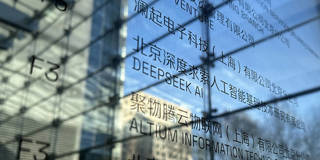US restrictions on high-tech exports to China were designed to hamper the country's progress in cutting-edge sectors, such as artificial intelligence. But, as DeepSeek has shown, the restrictions have had the opposite effect, spurring precisely the kinds of innovations that will enable Chinese firms to challenge US tech oligopolies.
LONDON – In 1957, the Soviet Union launched the world’s first artificial satellite into orbit, sparking fears in the United States that, unless it took radical action to accelerate innovation, its Cold War adversary would leave it in the technological dust. Now, the Chinese startup DeepSeek has built an artificial intelligence model that it claims can outperform industry-leading American competitors, at a fraction of the cost, leading some commentators to proclaim that another “Sputnik moment” has arrived.

LONDON – In 1957, the Soviet Union launched the world’s first artificial satellite into orbit, sparking fears in the United States that, unless it took radical action to accelerate innovation, its Cold War adversary would leave it in the technological dust. Now, the Chinese startup DeepSeek has built an artificial intelligence model that it claims can outperform industry-leading American competitors, at a fraction of the cost, leading some commentators to proclaim that another “Sputnik moment” has arrived.